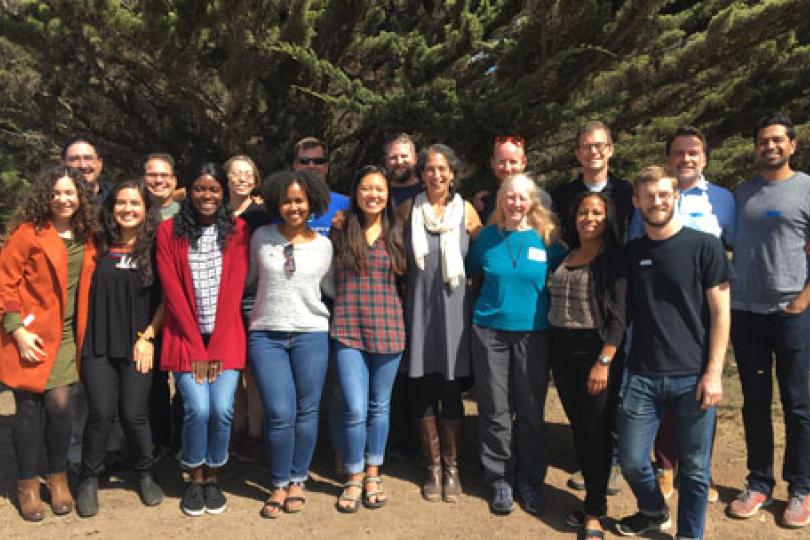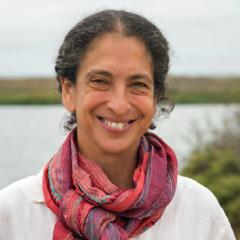Fall retreats help build leadership skills to advance equity
Every fall, we bring the new class of Switzer Fellows together at Fellowship Retreats to officially welcome them to the Switzer Fellowship Network, and to meet each other and Fellow alumni. These retreats provide the first opportunity for new Fellows to develop relationships with each other and the Foundation that will continue throughout their careers. Through our annual fall retreat leadership training, there is also an opportunity for all of us to deepen our understanding and experience of what leadership means as individuals to help prepare us for taking that leadership out into the world.
As the Switzer Foundation has stepped into its own leadership journey to explore how to bring a stronger equity lens to our own work, we realized that the training for new Fellows should also create an opportunity for them to strengthen their knowledge and practice towards that same goal.
This year, we engaged environmental leader and consultant, Angela Park, to lead the training session focused on “Equity as a 21st Century Leadership Competency.” Ms. Park helped lay the groundwork for reflection on our individual social identities, and explored core concepts that connect that experience to power dynamics in our organizations and in society. She placed this in a context of the history of the environmental field so that Fellows can explore their own path to making contributions to embed equity in their work, whether working in policy, community activism, or in scientific research on any environmental topic.
The California retreat included a focus on indigenous leadership with Chuck Striplen (2003), Environmental Scientist with the North Coast Regional Water Quality Control Board and member of the Amah Mutsun Tribal Band; and Irene Vasquez (2017), master’s candidate at Humboldt State University, enrolled with the Southern Sierra Miwuk Tribe. Chuck spoke of how his experience as a scientist can dovetail and support efforts to bring traditional ecological knowledge of tribes into his work, and how he can be a bridge between those worlds. Irene spoke of her deep ancestral connection to Yosemite as a place and her relationship with tule, a traditional plant used in basket-making, and how plants, people and place reflect a story that if woven into all our lives, can perhaps restore not only the ecosystems, but the broken relationships of a place.
In New England, David Queeley, Director of Eco-Innovation at the Codman Square Neighborhood Development Corporation in Dorchester, MA, shared his personal experience starting out in the conservation field and ultimately finding his calling to bring healthier relationships to place in an urban setting. He talked about how his work in the Codman Square district, a low-income community in Boston, operates at various intersections of policy, green jobs, public transit, community engagement and empowerment.
Our main goals at the fall retreat are to learn, renew and inspire. Each gathering is filled with new connections, new insights, hope for the future, and most of all, inspiration. This was my 20th retreat season, and each time I feel that we learn and carry this inspiration forward for the work ahead. In these times, hope and inspiration fuel our leadership.

